Burnt has a high-toned cast, a first-rate screenwriter (discounting Seventh Son) and a competent — if not exciting — director, so how could it be as bad as you’ve probably heard? The answer is simple: It can’t and it isn’t. In fact, I’d say it’s good, and sometimes very good. Based on what I’d heard, I kept waiting for it to…well, start sucking, but it just wouldn’t cooperate. So why has it been met with such scorn? That I can’t tell you. Oh, it’s not the best movie you’ve ever seen, but it’s consistently entertaining, often clever, sometimes touching and every so often it has moments of surprising grace. Frankly, as food-centric movies are concerned, I’d rank it near the head of the class. (I’d rather sit through this 10 times than watch last year’s Chef once.) That it has received a lower Rotten Tomatoes score than Scouts Guide to the Zombie Apocalypse is further evidence of the central fallacy of review-aggregation sites as meaningful.
Bradley Cooper plays Adam Jones, a one-time world-class chef whose drinking and doping and impossibly arrogant and volatile behavior has turned him into a pariah. After disappearing (most seem to wishfully believe him dead), cleaning up his act and doing penance by (literally) shucking a million oysters in Louisiana, he takes off for London and a shot at not only regaining his status as a two-star Michelin chef, but to create a restaurant that earns him that coveted third star. Unsurprisingly, most of his old friends and associates are not happy to see him.
Equally unsurprising is the fact that his arrogance and bad temper are still very much in evidence. But Adam also has a certain charm and is somewhere in between a force of nature and a master manipulator. In fact, he manipulates his way into being given a restaurant by old friend Tony (Daniel Bruhl), convincing the man that Adam can help him win the respect of his dying father. (There’s actually more to this and it’s perhaps the most nuanced aspect of the film, but more of that later.) Tony’s agreement — or his family’s agreement — comes with an understandable catch: Adam has to submit to a blood test for drugs once a week. The fact that this test is administered by Tony’s shrink (Emma Thompson) may be one of the screenplay’s more convenient (and least believable) points, but it works well in context, and the chemistry between Cooper and Thompson smooths it over.
The biggest problem with the film may be that it simply contains too much material and too many characters. But this isn’t necessarily a bad problem to have. (Consider Chef where nothing ever seemed to be really at stake.) OK, the business with Adam owing money to some drug dealers isn’t really essential to the story, though it does give Alicia Vikander as Adam’s ex-girlfriend more justification for being in the film. And his relationship with his star-chef-in-training Helene (Sienna Miller) might have benefited from a little more development.
But other things truly serve to create an interesting character for Adam. The business with a chef (Omar Sy) he once helped destroy is one such instance, revealing as it does that the easiest person on earth to manipulate is a manipulator. Similarly, what is little more than a cameo for Uma Thurman as the London Times food critic becomes something more just by the revelation that, despite being a lesbian, she once slept with Adam (to her lasting regret). More and more, the sense is that there’s much here below the surface, which brings us to Adam’s relationship with Tony. Without saying too much, I think it’s fair to say that this is one of the best — and truest — depictions of the hopeless love of a gay man (Tony) for a straight man I have ever seen. And what the film leaves unsaid speaks volumes on both sides, while leaving us with the sense that we’ll never know the whole story — and perhaps we shouldn’t.
Yes, the film’s trajectory is pretty clear from the onset — perhaps even more so if you’re familiar with Steven Knight’s other screenplays, which are nearly all about redemption (hell, his 2013 Jason Statham thriller — which he also directed — is even called Redemption). As in the past, however, it’s the path to and the price of redemption that makes them worthwhile. That’s true here, too. Ignore the bad reviews. See this film. Rated R for language throughout.



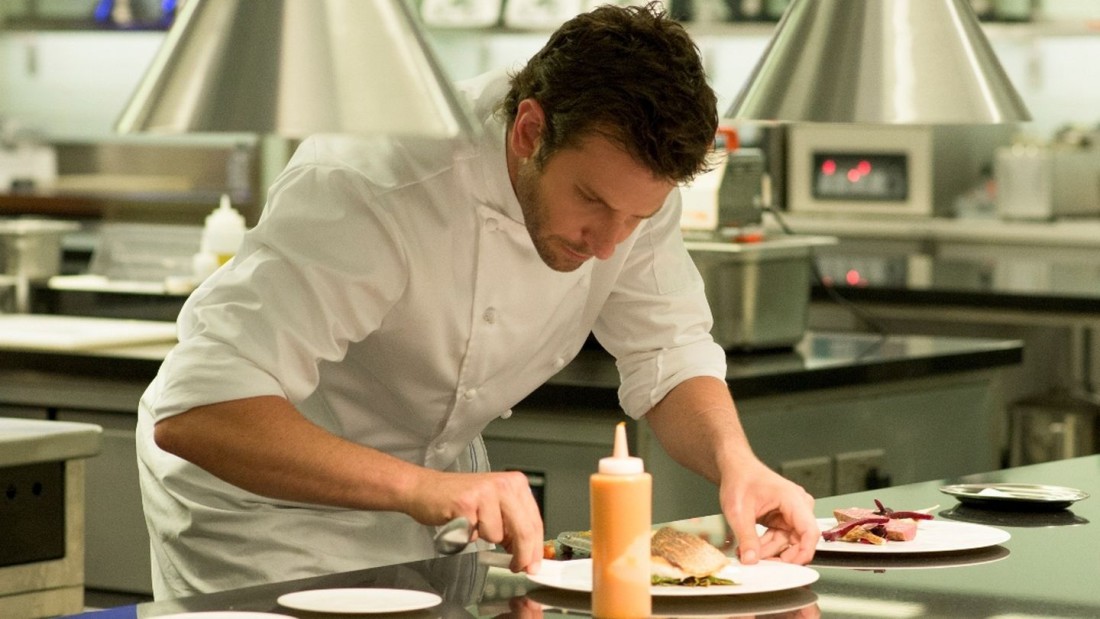

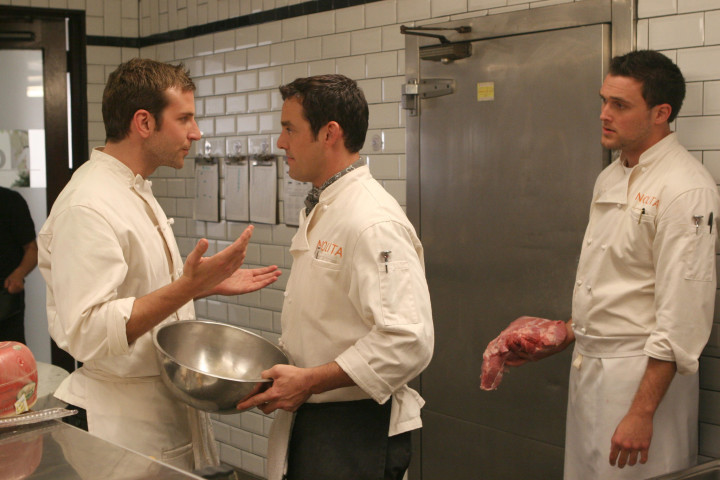
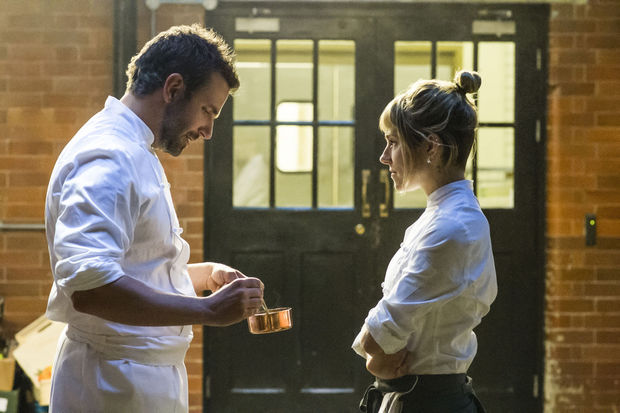
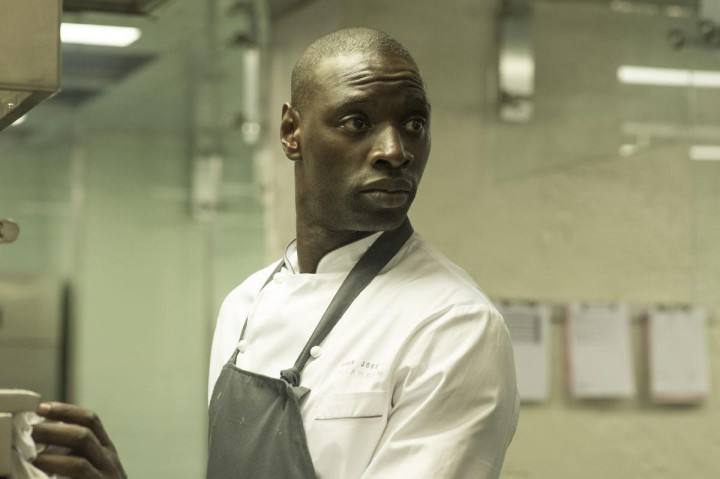
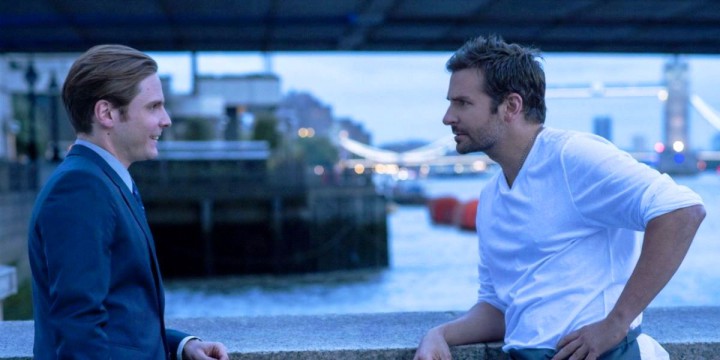
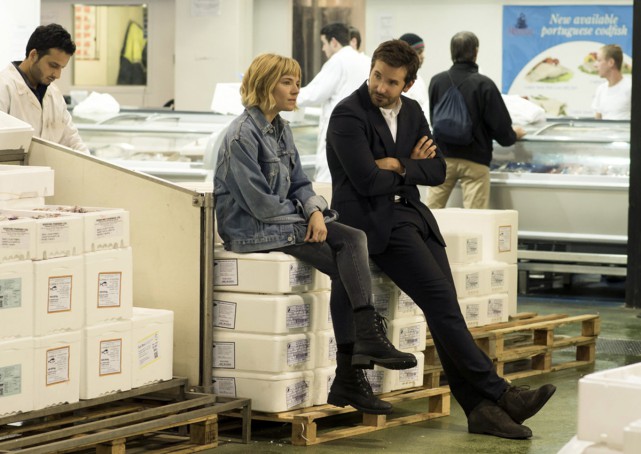
“So why has it been met with such scorn?”
“…a one-time world-class chef whose drinking and doping and impossibly arrogant and volatile behavior has turned him into a pariah…(after returning)…his arrogance and bad temper are still very much in evidence.”
The simple answer is that many of us are tired of films that celebrate assholes. I know you hated “Chef”, but I was among the many who welcomed its’ simplistic, wholesome, fun worldview as a relief from the usual love fest over “complex”, “talented” and “eccentric” characters who at the end of the day are just freakin’ jerks who cannot remember what it means to be nice to people. And don’t get me started on celebrity chefs.
Personally, I think this movie was just another excuse for BC to exercise his trademark “twisty-face silent cry” again (reference his final scene in “American Hustle”).
Answer one key question — have you actually seen Burnt?
Should I take that as no?
Sorry I took so long, I have been to busy to log in for a week.
No, but I saw the previews (complete with Cooper’s aforementioned silent cry) and that was enough to turn me off seeing it until it comes out in DVD and I can get it for free from the library. It doesn’t look worth paying for.
I do want to add that in spite of his trademark cry, he doesn’t overuse it and I like Cooper in more films than I dislike him, this just isn’t one of the likes. I loved him in “Silver Linings Playbook” and “American Hustle” (cry and all).
Well, at least I actually saw Chef before I decided it was bad, not just a 2 1/2 minute trailer,
I’ll see it next year (for free, from the library) and get back to you.
Till then, you might want to eschew phrases like, “I like Cooper in more films than I dislike him, this just isn’t one of the likes.”